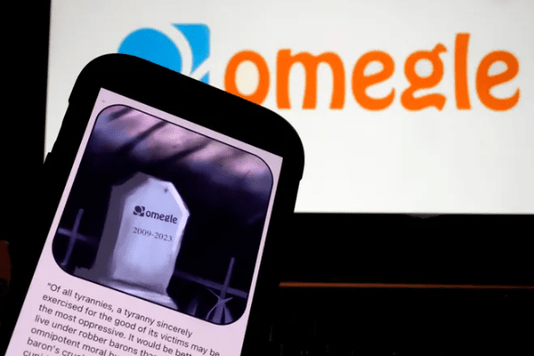Omegle Shuts Down After 14 Years
Omegle, a once-thriving anonymous video chat service, has officially closed its virtual doors after 14 years, as declared by founder Leif K-Brooks. The platform, celebrated for its random pairing of strangers in video or text chats, openly admitted to rampant misuse, especially as an alleged hub for sexual predators.
In a forthright statement on the website, K-Brooks acknowledged the platform’s association with ‘unspeakably heinous crimes,’ directly confronting the longstanding criticism haunting Omegle. While conceding to the platform’s misuse, K-Brooks underscored the ongoing efforts to ‘implement reasonable measures to fight crime.’
Despite facing backlash and calls for closure, K-Brooks staunchly defended Omegle, portraying it as a symbol of the fundamental principle of a free society, championing users’ rights to connect with random individuals online.
Conceived by K-Brooks at the tender age of 18 in 2009, Omegle aimed to carve out a space for ‘social spontaneity’ in the digital landscape. Initially envisioned as a virtual stroll through a global village, engaging in conversations with random passersby, the platform’s noble aspirations eventually succumbed to a tarnished reputation, marred by associations with sexual predators and extremist ideologies.
The decision to shutter Omegle comes on the heels of a recent lawsuit settlement accusing the platform of facilitating the online abuse of an 11-year-old girl by an adult man over three years. Filed in 2021, this legal development added to Omegle’s troubled history, marked by threats, hacking incidents, and various criminal activities.
K-Brooks made it clear that Omegle’s closure was not an admission that its anonymous nature shielded malicious users from justice. He asserted that the platform consistently collaborated with law enforcement agencies and organizations such as the National Center for Missing and Exploited Children to address crimes committed on the platform. Additionally, he emphasized the substantial investment in content moderation, utilizing artificial intelligence to maintain order on the platform.
As Omegle bows out of the digital stage, its demise prompts contemplation on the delicate equilibrium between fostering online spontaneity and shielding users from exploitation. The saga of Omegle stands as a cautionary tale, highlighting the intricate challenges of providing an open platform for online interactions while navigating the perils of misuse and criminal behavior.
Click Here to Read More Articles: truereviewmagazine.com










